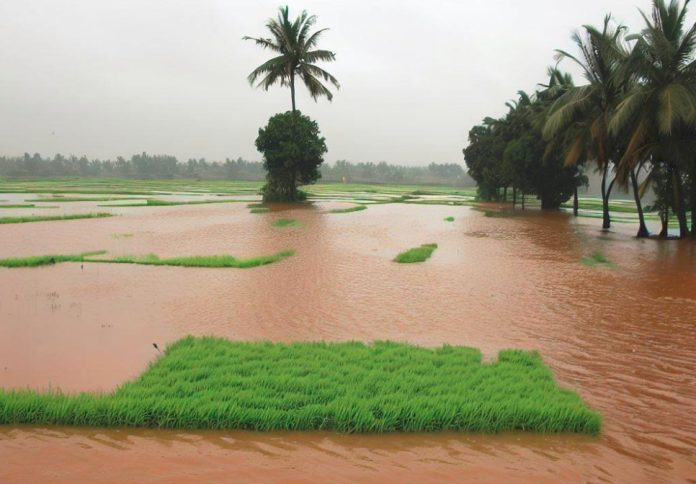News in brief: Heavy rainfall in Karnal, India, has caused flood that submerged thousands of acres of agricultural land. The situation has raised concerns among farmers, who fear the damage to crops like rice, sugarcane, and vegetables, highlighting the potential impact on India’s agricultural exports and global food trade.
Heavy rainfall in Indian town of Karnal has submerged 10,000 acres of agricultural land. Located in Haryana, the region faced days of ceaseless rain which swelled the banks of the Yamuna River and led to flooding.
Many outlying agricultural lands have been submerged in various villages along the riverâs route. Sources report that the district has witnessed around 250mm of rainfall in the past three days.
Officials and government authorities have urged for calm among villagers in dealing with the situation. However, farmers fear for the worst as the deluge has completely damaged crops like rice paddy, sugarcane, vegetables and others. They added that the flooding was a perennial problem that needed proactive government measures.
Latest reports claim that Yamuna in Delhi water levels have breached the danger mark of 205.33 meters and hovered at more than 207 meters by Wednesday, July 12 2023. It has triggered a high alert, according to the Central Water Commission (CWC).
River #Yamuna at #Delhi Railway Bridge in #NORTH district of #Delhi continues to flow in #SEVERE SITUATION at a level of 207.37 m with #Rising trend which is 2.04 m above its Danger Level of 205.33 m.@MoJSDoWRRDGR @ndmaindia @NDRFHQ @CWCOfficial_GoI pic.twitter.com/KYSqz8hcVa
— Central Water Commission Official Flood Forecast (@CWCOfficial_FF) July 12, 2023
More rain is predicted in the city for the entire week after three continuous days of torrential downpours, triggering waterlogging in several areas.
The Yamuna is the second-largest tributary river of the Ganges by discharge and the longest tributary in India. The country has been seeing extreme weather patterns, with record fatal heat waves and heavy floods in monsoon season.
Farmers have been on the receiving end of this situation as the rains have had a destructive effect on crops and farmlands. It becomes especially critical, as the rains are more unpredictable and damaging in recent times.
India is an important player in global agriculture trade and contributes some of the highest volume of commodities like rice, wheat, cotton, sugar, horticulture, and dairy. Most of its planting happen during the rainy season as farmers are still heavily dependent on rainfall for irrigation. There is fear among expects that the flooding issues could easily become a problem for the rest of the world if it reduces the country’s agricultural exports.



